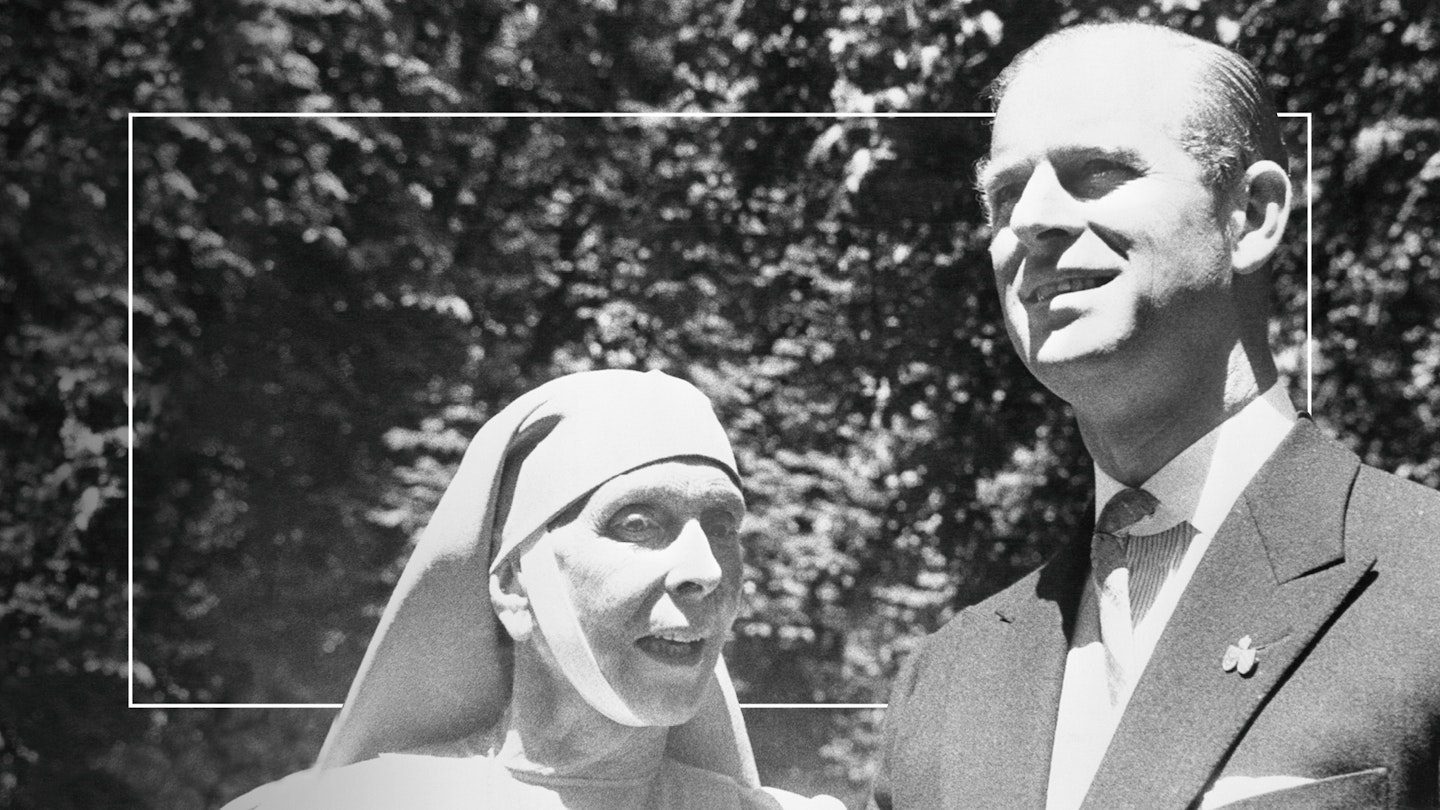As we reflect back on the life of Prince Philip, how much truth about his life can we learn from fictional portrayals of him? The Crown is perhaps one of the best-known modern depictions of the Duke, and in first two seasons, we saw Prince Philip played by Matt Smith as a confident if sometimes cranky man, chafing at the restrictions placed upon him by being married to the Queen. But as we learn more about Prince Philip's family tree, we also learn that he was also a man dealing with trauma; the trauma left after a turbulent childhood that involved the mental ill health of his mother, the cruelty of his father, the death of a beloved sister, the fleeing of Greece after the royal family were toppled and the misery of World War Two (three of Philip’s sisters married prominent Nazis).
But by the time we got to The Crown season three, we meet an older Philip (played by Tobias Menzies); and in episode four of season three – an episode called “Bubbikins”, based on the nickname Philip’s mother gave him – his family tree once again comes to the fore, mainly through a renewed relationship with his mother, Princess Alice of Battenberg (played by Jane Lapotaire). But how much of that portrayal of Prince Philip and his mother actually based on reality?
READ MORE: Prince Philip, The Duke Of Edinburgh, Has Died – Grazia Pays Tribute With An Obituary
Who was Prince Philip's mother?
The mother of Prince Philip was Princess Alice of Battenberg was born Victoria Alice Elizabeth Julia Marie in Windsor Castle and was a great-granddaughter of Queen Victoria. She married Prince Andrew of Greece and Denmark when she was still a teenager and went on to have five children; Philip, her only son, and four daughters. In the early 1920s, the Greek royal family were toppled and Princess Alice and her family had to flee to Paris; Prince Philip was only a baby.
Over the next decades, Princess Alice’s family were dispersed: Philip went to school in England and Scotland; the four girls married German nobility (with Nazi connections); and Prince Andrew settled in Monte Carlo, having little to do with his family.
Later in the 1920s, Princess Alice suffered mental ill health: having been born deaf, she had found herself isolated and she began to experience ‘religious delusions’, believing that she had been intimate with Christ. She was diagnosed with paranoid schizophrenia and treated by Sigmund Freud in Germany. Freud believed there was a problem with Princess Alice’s hormone levels and ordered X-rays of her ovaries, a treatment that is believed to have prompted an early menopause. Later, she was sent to a sanitorium in Switzerland, where she remained for several years.
An elderly chain-smoking nun, she was an embarrassment to Philip, who says at one point in the episode that she was only ever ‘technically’ his mother.
Having escaped the sanitorium, she returned to Athens and throughout World War Two, she sheltered Jews (even as several other members of her family were involved with the Nazi party). She stayed in Greece after the war and founded an Orthodox order of nuns, staying at the convent for decades.
The Crown season three picks up at this point; when military rule was imposed in Greece in 1967, she was thought to be unsafe and brought to England to live with Prince Philip and the Queen. An elderly chain-smoking nun, she was an embarrassment to Philip, who says at one point in the episode that she was only ever ‘technically’ his mother: ‘It means she gave birth to me.’
At that point in the late 1960s, the royal family was enduring a spell of unpopularity and making efforts to prove their worth and authenticity. In season three, episode four of The Crown, they invite a documentary crew into the palace to film them but as they watch the show, Gogglebox-style, it becomes apparent that they are stilted, ridiculous. Only when a Guardian journalist gets access to Princess Alice and is able to tell the story of her extraordinary life does the family enjoy a boost in popularity. The theme of this episode is authenticy: who has it and who doesn’t; can it be faked and how it is earned. After it becomes clear that Princess Alice is the truly authentic royal, she lives out her last years in the peaceful and grand surroundings of the Palace, just as she did in real life.
Did Prince Philip Speak Greek?
As the country reflects on Philip's life, people are wondering about the man behind the titles - and lots of are googling whether Prince Philip's upbringing meant he spoke Greek. So, did Philip speak Greek? While Philip was born in Greece, he left when he was a baby and so never learnt the language. His family spoke English and he grew up speaking French and German too - quite the linguist.
READ MORE: How Similar Is Olivia Colman's Queen Elizabeth To The Actual Queen Elizabeth?
READ MORE: Erin Doherty Addresses The Princess Anne Wales Jibes
